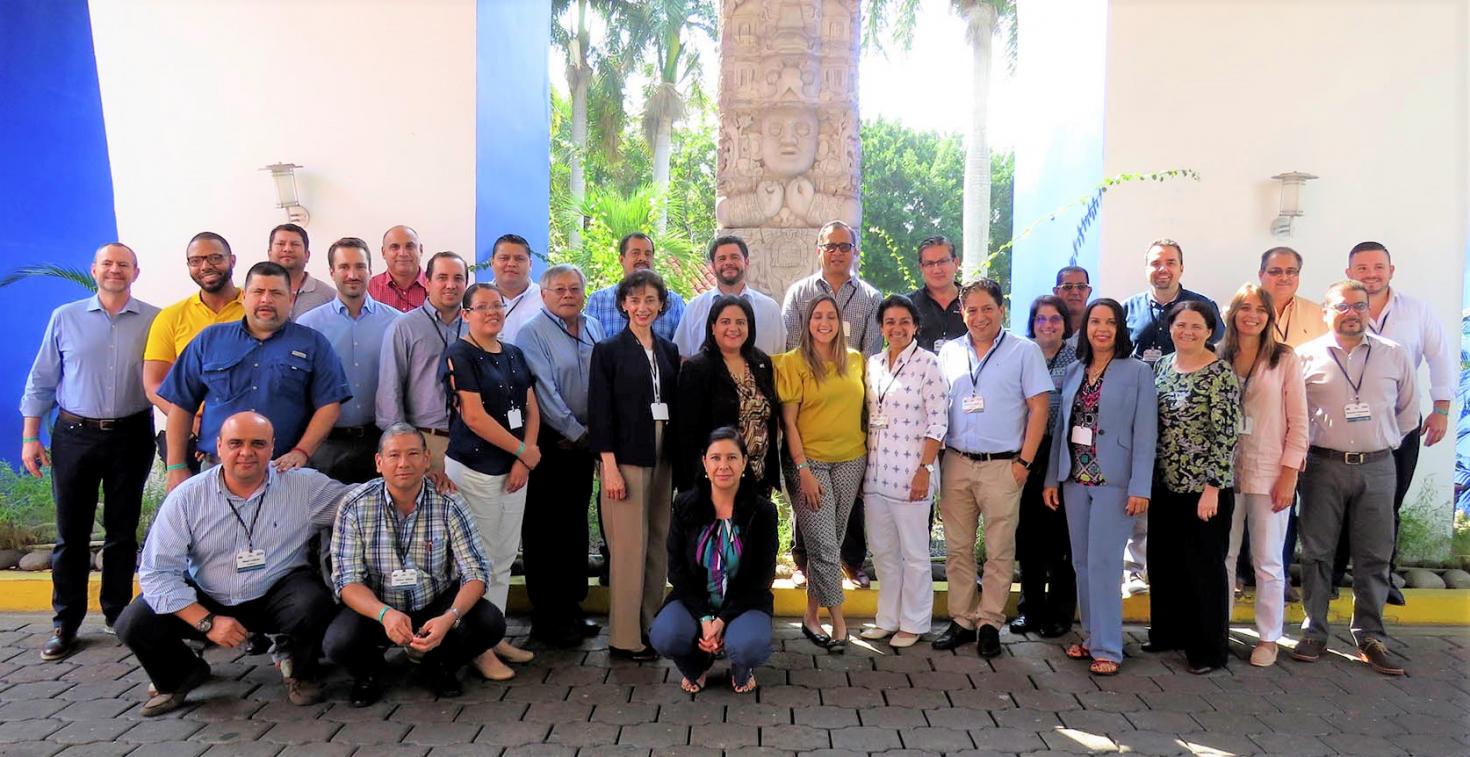A joint initiative by the USDA, USAID, and IICA will enable countries of the region to enhance the quality and guarantee the safety of agricultural products throughout the agro-production chain.

La Libertad, El Salvador, 16 April 2019 (IICA). Central America and the Dominican Republic will enjoy improved local trade in and export of safe, high-quality foods, as a result of a food safety capacity building initiative that benefitted more than 25 technical officers and specialists in plant and animal safety, as well as government delegates involved in the areas of food and the economy.
The training was part of a regional workshop in Sonsonante, El Salvador that the United States Department of Agriculture (USDA), the United States Agency for International Development (USAID), and the Inter-American Institute for Cooperation on Agriculture (IICA) organized in conjunction with the governments of these countries.
The activity saw agricultural experts from the US organizations and technical consultants from various countries in the region sharing expertise on the risk-based inspection system, with a view to strengthening the development and implementation of the system for prioritized chains of seafood, dairy, fruit, and vegetable products.
The specialists presented in-depth sessions, covering topics related to the safety and quality of agricultural crops, such as maximum residue limits (MRLs) in food, preparation of standards, monitoring systems, risk management, inter alia.
The participants also expanded their knowledge on updated regulations of the Food Safety Modernization Act (FSMA), which has seven different regulations focusing on consumer health protection.
In response to the increased need for safe food and consumers demands, IICA developed the Agricultural Health, Safety, and Food Quality Program, through which it seeks to enhance technical capacities, facilitate the adoption of good practices, and improve the safety and quality of agricultural products.
Ana Marisa Cordero, Agricultural Health Specialist at IICA maintained that, “The Institute is committed to safety and the protection of human health, and thus we are striving to mobilize knowledge through partnerships that strengthen trade and regional integration. In this way, we are strengthening the Central American Customs Union”.
Más información:
Ana Marisa Cordero, especialista en Sanidad Agropecuaria del IICA











